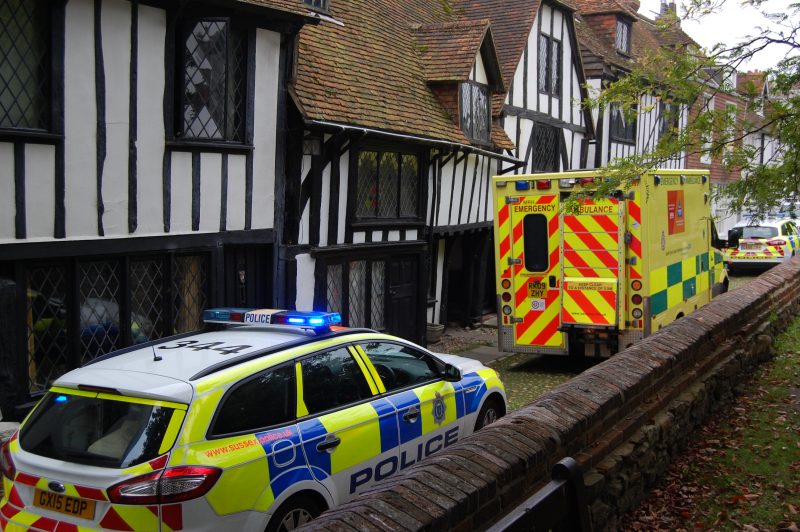My daughter is a hospital doctor, and a number of doctors and nurses have died in the current pandemic. But others are front line workers too – and earlier this week bus drivers were in the news, and my son works in a supermarket without personal protective equipment (PPE).
When he fell ill at work and was sent home, after describing the symptoms, he was told by NHS 111 to self isolate – but he was not tested – and he recovered, and is now back at work.
And probably what had actually made his asthma worse was three days of panic buying by customers with sales trebling overnight, shelves having to be constantly refilled, and lots of empty spaces on those shelves by lunchtime – leaving him exhausted.
But tests currently are only being done in hospitals – or in special centres for NHS staff in order to get them back to work as quickly as possible.
And if someone has to go to hospital there are other reasons for going, such as courses of chemotherapy and other health issues of long standing.
But Rye can be a rats’ nest of gossip and rumour based on “someone told me that a friend heard from someone else” which is designed to scare anyone prone to panic, and it is not part of local groups’ tasks (like REACT and Rye Mutual Aid) to report on what is happening, and neither do they want it – although it has been suggested they could or should. Rely instead on NHS and government reports which are as accurate as they can be.
The daily figures we see on TV are based on hospital records of those who have been tested and subsequently died. Others who did not die in hospital may have never been tested and the cause of death may be nothing to do with the virus.
In the second world war (when I was born) there were posters which said “Careless talk costs lives”. Perhaps we need a new one that says “Careless gossip causes panic”.
As a reporter back in the ’60s I attended major incidents when there were multiple deaths and injuries, and many of the reports were in conflict with each other as one reporter might see the injured at the scene of the accident and another would be at the hospital – but they both saw the same people (counted twice), and the accurate figure only came later from the hospital.
Get your information from official sources (like the government and the NHS) who can see the whole picture and need to be as accurate as possible. Don’t pass on gossip which is quite often totally inaccurate, and based on assumptions, but can upset people like me who have family members at risk – and local volunteers who are doing a magnificent job.
Image Credits: Kenneth Bird .




Just a small point. We would trust government spokespeople if they were more open.
My major problem is the underreporting of COVID19 deaths, 12,000 at time of writing, by only counting those dying in hospital.
Those dying in Care homes, Hospices and at home are only recorded by the Office of National Statistics based on death certificates.
Channel4 news have examples of over-stretched doctors giving cause of death as Alzheimer’s to save the extra administration involved mentioning COVID19. In some extreme cases doctors are having to ascertain cause of death by video link.
Finally, Ireland estimate that 50% of all COVID19 deaths are outside hospitals.
Every day senior health officials working in the field are contradicting most of Matt Hancock’s statements.
I know who I am inclined to believe.